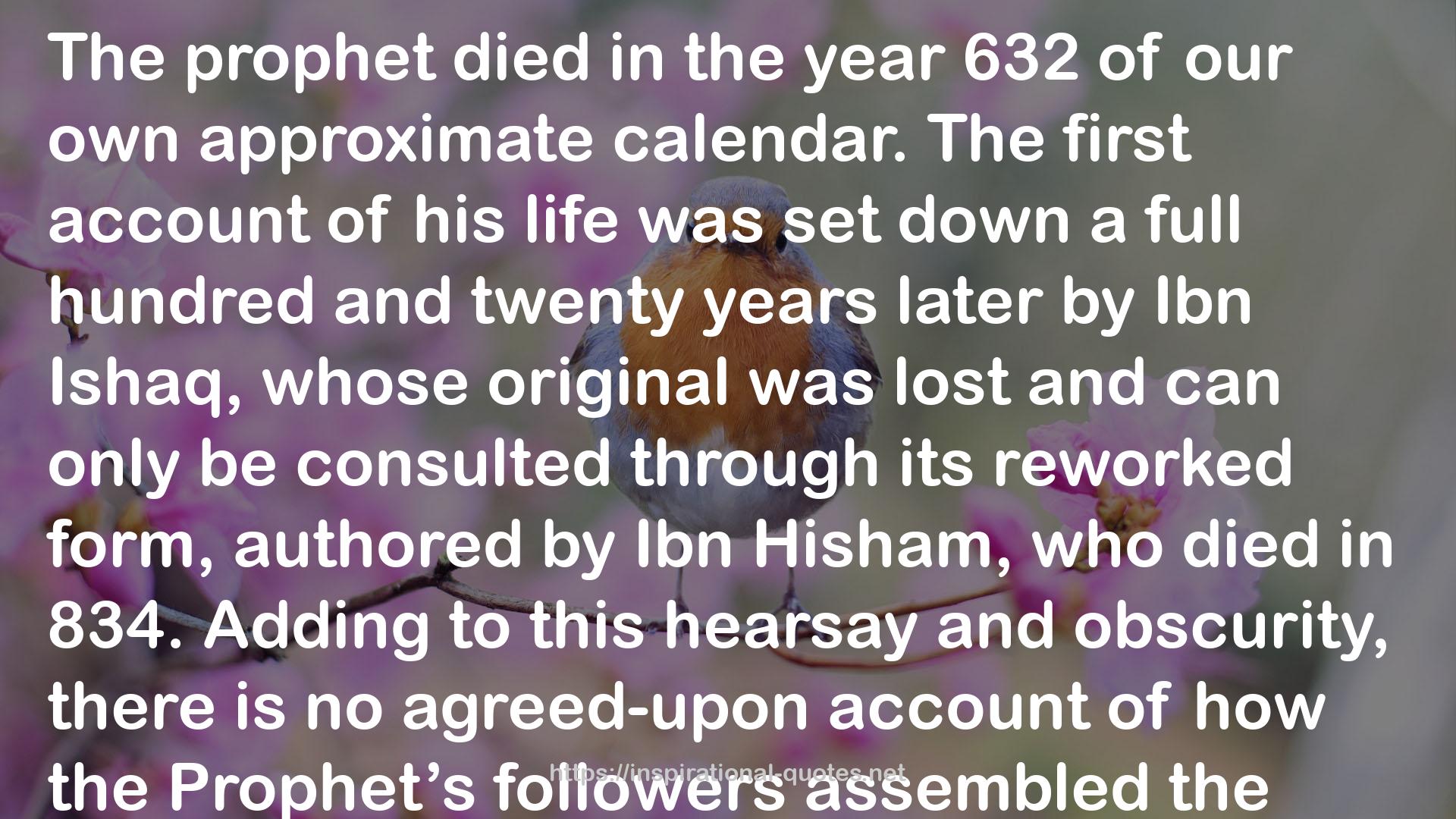" The prophet died in the year 632 of our own approximate calendar. The first account of his life was set down a full hundred and twenty years later by Ibn Ishaq, whose original was lost and can only be consulted through its reworked form, authored by Ibn Hisham, who died in 834. Adding to this hearsay and obscurity, there is no agreed-upon account of how the Prophet’s followers assembled the Koran, or of how his various sayings (some of them written down by secretaries) became codified. And this familiar problem is further complicated—even more than in the Christian case—by the matter of succession. Unlike Jesus, who apparently undertook to return to earth very soon and who (pace the absurd Dan Brown) left no known descendants, Muhammad was a general and a politician and—though unlike Alexander of Macedonia a prolific father—left no instruction as to who was to take up his mantle. Quarrels over the leadership began almost as soon as he died, and so Islam had its first major schism—between the Sunni and the Shia—before it had even established itself as a system. We need take no side in the schism, except to point out that one at least of the schools of interpretation must be quite mistaken. And the initial identification of Islam with an earthly caliphate, made up of disputatious contenders for the said mantle, marked it from the very beginning as man-made. "
― Christopher Hitchens , God Is Not Great: How Religion Poisons Everything
